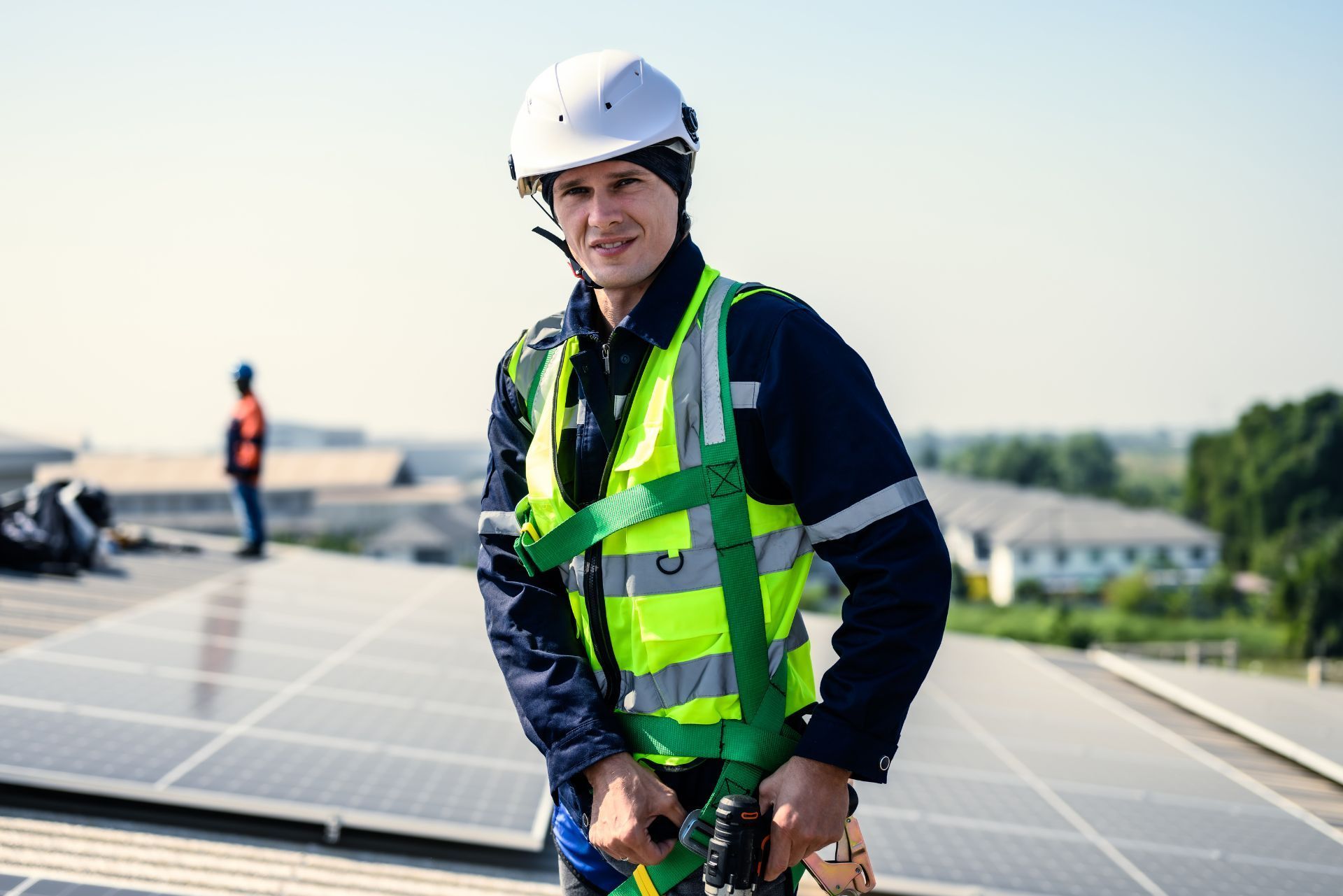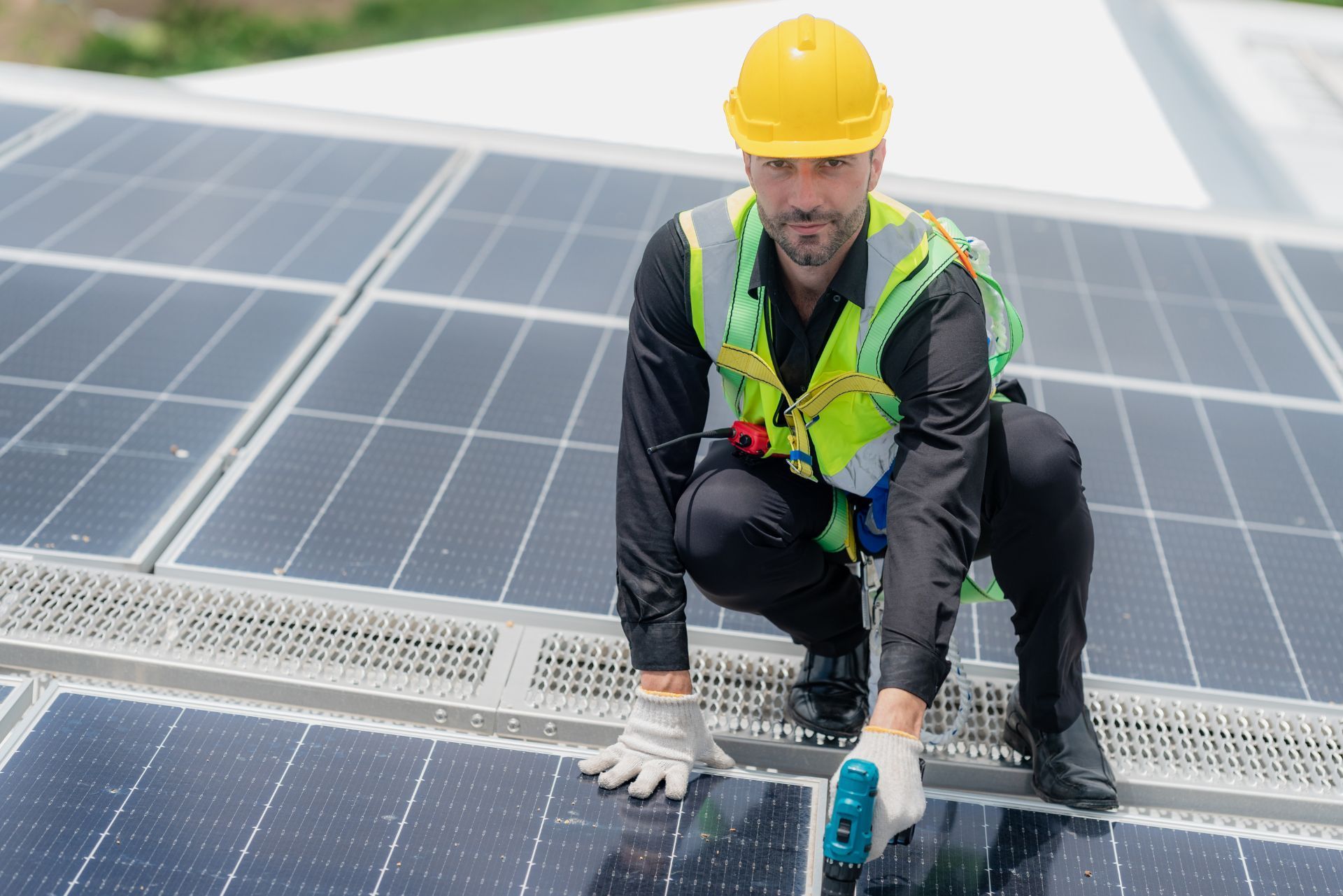Colorado Solar Installer Insurance

8:30am - 5:00pm Mon-Fri
We'll Reply in 15min*
Index
Colorado’s Insurance Landscape and Its Impact on Solar Installers
Key Risks Facing Solar Installers in Colorado
Understanding Insurance Coverage Types for Solar Installers
Recent Regulatory Developments and Consumer Protections in Colorado
How Rising Insurance Costs Affect Solar Installation Businesses
Best Practices for Solar Installers to Manage Insurance Risks
Conclusion: Navigating the Future of Solar Installer Insurance in Colorado
Contact Us
Phone
303-421-5123
Location
9035 Wadsworth Parkway
Suite 2730B
Westminster, CO 80021
As Colorado continues to shine as a leader in solar energy adoption, the demand for solar installation services is booming. With over 2,671 MW of solar capacity installed—enough to power more than half a million homes—the solar industry in Colorado is thriving (Solar Energy Industries Association). However, this growth brings with it unique challenges, especially when it comes to insurance for solar installers. Understanding the nuances of insurance coverage is essential for solar businesses to protect themselves, their clients, and their investments in an increasingly complex market.
This comprehensive guide will explore everything you need to know about solar installer insurance in Colorado—from the state’s insurance landscape and risk factors to recent regulatory developments and consumer protection measures. Whether you're a solar contractor, a homeowner considering solar installation, or simply interested in the industry, this article provides valuable insights into the insurance dynamics shaping Colorado’s solar market.
Colorado’s Insurance Landscape and Its Impact on Solar Installers
Colorado’s insurance market is currently under significant pressure, with homeowners insurance premiums rising sharply over recent years. The average homeowners insurance premium in Colorado is $1,640, which is 35% higher than the national average of $1,213 (The Journal). This increase is part of a broader trend: premiums have surged by nearly 58% from 2018 to 2023 according to the Rocky Mountain Insurance Association.
These rising costs affect solar installers in multiple ways. First, homeowners may be hesitant to add solar panels if it means higher insurance premiums or complicated claims processes. Second, insurers themselves are becoming more cautious about underwriting solar-related risks, especially given the frequency of weather-related damage claims. Carole Walker, executive director of the Rocky Mountain Insurance Association, highlights that Colorado is at a “tipping point” regarding insurance availability and affordability, echoing concerns seen in other states like California (The Prowers Journal).
For solar installers, this means navigating a complex insurance environment where coverage costs may rise and insurers may impose stricter terms. Understanding these market dynamics is crucial for maintaining business continuity and managing client expectations. Additionally, the growing concern over climate change and its impact on extreme weather events has led to a more cautious approach from insurers. This shift in perspective means that solar installers must not only consider the financial implications of insurance but also the potential for increased scrutiny on the installation process itself. Installers may need to provide additional documentation and assurances regarding the resilience and safety of their systems, which could further complicate project timelines and costs.
Moreover, the evolving insurance landscape could spur innovation within the solar industry. As installers face these challenges, some may seek to partner with insurance companies to develop tailored policies that address the unique risks associated with solar installations. This could lead to more competitive offerings that not only protect homeowners but also incentivize the adoption of solar technology. Furthermore, educational initiatives aimed at homeowners about the benefits of solar energy and how it can potentially offset rising insurance costs could play a pivotal role in shifting public perception and increasing market demand.

Key Risks Facing Solar Installers in Colorado
Solar installation companies face a variety of risks that insurance policies must address. Among the most significant is weather-related damage, particularly hail. Hailstorms are a common hazard in Colorado, and hail damage accounts for 55% of all weather-related claims for solar photovoltaic (PV) projects across North America (Insurance Business Magazine).
Given that 7% of Colorado households had rooftop solar PV systems as of 2021, covering about 2.5% of roof areas statewide (arXiv study), the exposure to hail and other weather risks is substantial. Solar installers must ensure their insurance policies cover potential damage during and after installation, including liability for faulty workmanship or equipment failure.
Other risks include theft, vandalism, and installation accidents. Additionally, solar installers must be vigilant against fraudulent practices in the market. Mark Fetterhoff, program manager for AARP ElderWatch, warns that “solar scams usually happen door-to-door, and ramp up when there are incentives like there are currently” (Colorado Newsline). This highlights the importance of insurance policies that protect against liability claims arising from misrepresentation or consumer disputes.
Moreover, the regulatory landscape surrounding solar energy in Colorado is continually evolving, which can pose additional risks for installers. Changes in state incentives, tax credits, and local ordinances can significantly impact project viability and profitability. Installers must stay informed about these changes to avoid compliance issues and potential financial losses. For instance, the recent push for more stringent building codes aimed at enhancing energy efficiency could require retrofitting existing installations, adding to operational costs.
Another critical risk is the reliance on a skilled workforce. As the demand for solar installations grows, the competition for qualified technicians intensifies. A shortage of skilled labor can lead to delays in project timelines and increased costs, as companies may need to invest in training or pay higher wages to attract talent. Furthermore, inadequate training can result in improper installations, leading to safety hazards and potential liability claims. Therefore, solar installers must prioritize workforce development and ensure that their teams are well-trained and knowledgeable about the latest technologies and safety practices in the industry.
Understanding Insurance Coverage Types for Solar Installers
Solar installation companies typically require several types of insurance coverage to protect their operations:
- General Liability Insurance: Covers bodily injury, property damage, and legal defense costs if a third party is harmed during installation.
- Professional Liability (Errors & Omissions): Protects against claims of negligence, mistakes, or failure to perform professional duties.
- Commercial Property Insurance: Covers damage to equipment, tools, and inventory.
- Workers’ Compensation: Required by law to cover employee injuries on the job.
- Installation Floater Insurance: Provides coverage for solar panels and equipment while in transit and during installation.
Each policy type addresses specific risks, and solar installers should work closely with insurance providers familiar with the renewable energy sector to tailor coverage to their unique needs. The complexity of solar installations, which often involve significant upfront investments in equipment and labor, makes comprehensive insurance essential. For instance, general liability insurance not only protects against accidents that may occur on-site but also extends to damages that might arise from faulty installations that could lead to property damage or personal injury after the project is completed.
Moreover, as the solar industry continues to evolve, installers may face new challenges such as regulatory changes and advancements in technology. This dynamic landscape necessitates that businesses remain vigilant and proactive in their insurance strategies. Engaging with an insurance broker who specializes in renewable energy can help solar installers navigate these complexities, ensuring that they have adequate coverage that evolves alongside their business and the industry at large. Additionally, understanding the nuances of each insurance type can empower solar companies to make informed decisions that not only protect their assets but also enhance their reputation in a competitive market.
Recent Regulatory Developments and Consumer Protections in Colorado
In May 2025, Colorado’s House Energy & Environment Committee discussed new warranty and consumer protection regulations aimed at strengthening the solar installation market. These regulations focus on ensuring installers provide reliable warranties and transparent contracts to protect consumers and reduce disputes (CitizenPortal.ai).
These regulatory efforts are significant for solar installers because they may affect insurance requirements and claims processes. For example, stronger warranty standards could reduce liability claims, but they may also increase the need for professional liability coverage. Moreover, consumer protection laws can help mitigate the risk of lawsuits stemming from deceptive sales practices, a concern highlighted by experts in the field.
Installers should stay informed about evolving regulations to ensure compliance and maintain adequate insurance coverage that reflects new legal obligations. Additionally, these changes may encourage a more competitive landscape among solar companies, as those who prioritize transparency and consumer protection could gain a significant advantage in the marketplace. By fostering trust with consumers, installers can not only improve their reputations but also enhance customer loyalty, ultimately leading to increased sales and referrals.
Furthermore, the implications of these regulations extend beyond just the installers themselves; they also empower consumers by providing them with clearer avenues for recourse in the event of disputes. With enhanced protections, homeowners can feel more secure in their investments, knowing that they have legal backing should an installation fail to meet the promised standards. This shift towards greater accountability is crucial in an industry that is rapidly evolving, as it helps to ensure that the growth of solar energy in Colorado is both sustainable and equitable.

How Rising Insurance Costs Affect Solar Installation Businesses
With homeowners insurance premiums in Colorado rising by nearly 58% over five years, solar installation companies face indirect pressures as well. Higher insurance costs for homeowners can dampen enthusiasm for solar investments, potentially slowing market growth. Additionally, solar installers may see their own insurance premiums increase due to the heightened risk environment.
Carole Walker’s commentary on the insurance market’s “tipping point” underscores the urgency for solar businesses to proactively manage risk and insurance costs (The Prowers Journal). This might involve investing in better installation practices, using more durable equipment, or partnering with insurers who specialize in renewable energy projects.
Ultimately, balancing insurance expenses while maintaining competitive pricing is a critical challenge for solar installers operating in Colorado’s evolving market. As the demand for solar energy continues to grow, businesses must also navigate the complexities of local regulations and incentives that can impact their bottom line. For instance, understanding the nuances of state and federal tax credits can provide significant financial relief, allowing solar companies to offer more attractive pricing to consumers even in the face of rising insurance costs.
Moreover, the increasing prevalence of extreme weather events, which are often linked to climate change, adds another layer of complexity to the insurance landscape. Solar companies need to stay ahead of these trends by not only enhancing their risk management strategies but also by advocating for policies that support sustainable energy initiatives. By engaging with local governments and industry associations, solar installers can help shape a more favorable regulatory environment that encourages investment in renewable energy while mitigating the financial burdens associated with insurance premiums.
Best Practices for Solar Installers to Manage Insurance Risks
To thrive in Colorado’s dynamic solar industry, installers should adopt several best practices related to insurance and risk management:
- Work with Specialized Insurers: Partner with insurance companies experienced in renewable energy to secure tailored coverage and competitive rates.
- Maintain High Installation Standards: Proper training and certification reduce the likelihood of accidents and faulty installations, lowering liability risks.
- Implement Strong Consumer Communication: Transparent contracts and clear warranty information help prevent disputes and claims.
- Monitor Regulatory Changes: Stay updated on state regulations to ensure compliance and adjust insurance coverage accordingly.
- Invest in Risk Mitigation Technologies: Use durable materials and protective measures against hail and weather damage to reduce claims.
By proactively managing these areas, solar installers can protect their businesses and contribute to a more sustainable and trustworthy solar market in Colorado. Additionally, fostering a culture of safety within the organization is crucial. This can be achieved by conducting regular safety meetings and training sessions to keep all employees informed about best practices and emerging risks. A well-informed team is less likely to make mistakes that could lead to accidents or damage, ultimately lowering insurance premiums over time.
Furthermore, solar installers should consider developing a comprehensive risk management plan that includes regular audits of their operational practices and insurance coverage. This plan should not only assess current risks but also anticipate future challenges as the solar industry continues to evolve. By being proactive and adaptable, installers can ensure they are not only meeting current standards but are also prepared for any changes in technology or regulations that may impact their business and insurance needs.
Conclusion: Navigating the Future of Solar Installer Insurance in Colorado
Colorado’s solar industry is poised for continued growth, supported by strong solar capacity and increasing consumer interest. However, the insurance landscape presents both challenges and opportunities for solar installers. Rising homeowners insurance premiums, frequent weather-related claims—especially from hail—and evolving consumer protection regulations all shape the risk environment.
Solar installation companies must understand these factors and secure comprehensive insurance coverage tailored to their unique risks. Staying informed about regulatory developments and adopting best practices in risk management will be key to sustaining growth and protecting both businesses and customers.
For those involved in Colorado’s solar market, keeping a close eye on insurance trends and collaborating with knowledgeable providers can make all the difference in navigating this exciting but complex industry.




